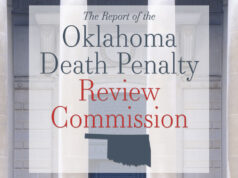
To the editors:
The debate to move Oklahoma to a Medicaid managed care system is complex. It requires all decision makers to focus only on facts in order for the citizens of Oklahoma to be well informed when the Oklahoma Legislature determines where to allocate funds for the approximately 200,000 new Medicaid recipients that will be added to the system this fall because of Medicaid expansion.
As the executive director of an Oklahoma nonprofit organization that supports Oklahomans with disabilities, I believe a managed care model is the best choice. It is a system proven in other states to improve health outcomes for Medicaid beneficiaries, while saving millions of dollars annually.
RELATED LETTER
Letter: Managed Medicaid will not save money or improve outcomes by Jimmy Durant
Unfortunately, a recent Government Accountability Office report has been used to further a narrative that managed care and managed care organizations lack oversight and will cause considerable financial strain to the state while not improving health outcomes of the hundreds of thousands of Oklahoma Medicaid recipients.
Nothing could be further from the truth. The GAO report looked specifically at managed long-term supports and services (MLTSS) programs, which contain the most difficult populations: elderly and disabled Medicaid members. The Oklahoma Health Care Authority is not proposing converting these members to managed care under the current system. The OHCA plans to start managed care with relatively healthy adults and children in order to provide time to effectively manage these populations before enrolling more complex populations.
The GAO report is also critical of state and federal oversight of contractors selected to manage the system. Oklahoma’s success in contract oversight and driving quality improvement will depend on OHCA’s program management. The professionals at OHCA have talked and will continue to talk with other states regarding best and worst practices related to managed care organization contract oversight. Unfortunately, the GAO’s observations were taken from one report regarding a managed care organization in another state — and it was about the MLTSS population. Hardly a fair comparison.
Another false narrative regarding managed care is the impact of federal funding for Native American care, which in Oklahoma is a very large population. Despite reports to the contrary, Oklahoma can capture 100 percent FMAP funding for Native American care regardless of whether the care is delivered through managed care or the current system. This is a fact.
As the discussion at the State Capitol continues, lawmakers must consider many factors, with the ultimate goal of improving health outcomes for Oklahoma’s most vulnerable population at a cost beneficial to the state. Dozens of other states have moved to managed care systems with great success, both to Medicaid beneficiaries and to their state treasuries. As long as the state provides realistic cost-savings estimates, a managed care model will save the state millions of dollars.
Jeff Hughes
Executive director, Progressive Independence, Inc.
Norman
(Editor’s note: NonDoc runs Letters to the Editors of between approximately 300 to 500 words. NonDoc reserves the right to edit lightly for length, style and grammar. We value a diverse set of voices respectfully discussing issues from different perspectives. To submit a letter for publication, please write to letters@nondoc.com.)























